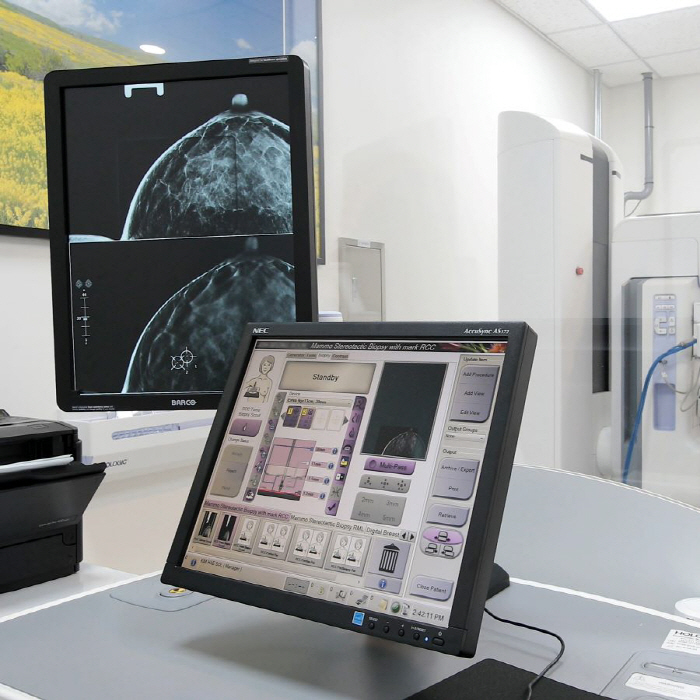Early detection of hereditary breast cancer, BRCA mutation is key
Sep 11, 2025
|
In general, it is classified into sporadic, familial, and hereditary breast cancer according to the cause, of which hereditary breast cancer is caused by mutations in specific genes inherited from parents, and typically the BRCA1 and BRCA2 genes. The BRCA gene is a tumor suppressor gene that repairs damaged DNA and is carried by everyone. Sometimes it is misunderstood that the presence of the BRCA gene causes breast cancer, but in reality, when there is a mutation in the BRCA gene, the risk of developing breast cancer increases.
The probability of breast cancer in ordinary women is less than 10%, but mutations in the BRCA gene can increase the risk of breast cancer by an average of 40 to 80%. In addition, the probability of ovarian cancer increases to 44%, so active preventive measures are needed when mutations are confirmed.
BRCA genetic testing typically collects 5 to 10 cc of blood and analyzes DNA present in the cell nucleus in the blood to confirm genetic mutations, and the results usually come out three to four weeks later. In particular, BRCA genetic testing is recommended if there is a BRCA gene mutation holder in the family or if there is a family member diagnosed with breast cancer, ovarian cancer, or pancreatic cancer at a young age.
If the pathological mutation of BRCA is confirmed, prophylactic drug treatment or breast and ovarian resection may be considered for the prevention of cancer. Prophylactic anti-hormones can reduce the risk of developing breast cancer by about 50%, and taking preventive oral contraceptives can reduce the risk of ovarian cancer by about 50%. In the case of preventive breast and ovarian resection, about 90% of breast cancer and about 97% of ovarian cancer can be prevented. However, since it is an operation to remove healthy organs, it must be decided carefully. Regular checkups are also important, and if you have a BRCA gene mutation, you need to have regular checkups from the age of 25.
If cancer is actually diagnosed, hereditary breast cancer has the same treatment principles as common breast cancer. It is largely divided into topical treatment and systemic treatment, and topical treatment is performed by removing the area where the cancer has occurred directly by surgery or controlling the lesion with radiation treatment. Systemic treatment includes chemotherapy, targeted therapy, immunotherapy, and hormone therapy, and targets cancer cells that can spread throughout the body.
Lim Ah-reum, professor of hematologic oncology at Korea University Ansan Hospital, said "In the case of BRCA mutant patients, they can try customized targeted treatment because they respond better to certain drugs such as PARP inhibitors."Heritable breast cancer does not necessarily have a bad treatment prognosis, and the prognosis is almost the same compared to other breast cancers." However, BRCA mutant patients are more likely to develop cancer in the opposite breast, so precise and long-term management is needed even after treatment.'
|
This article was translated by Naver AI translator.















